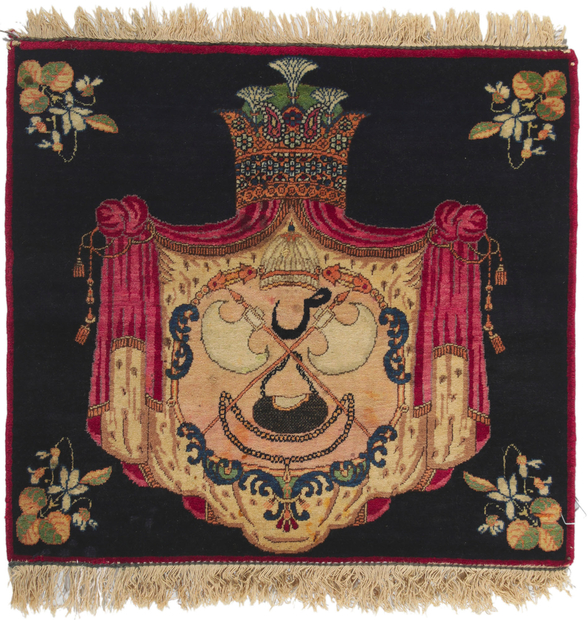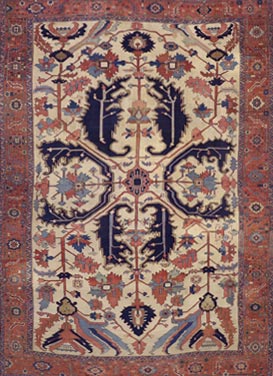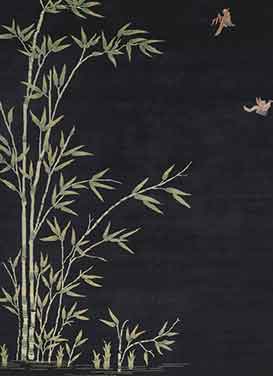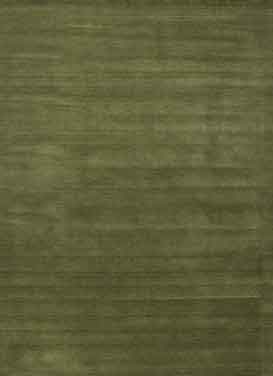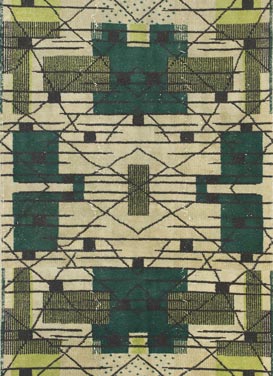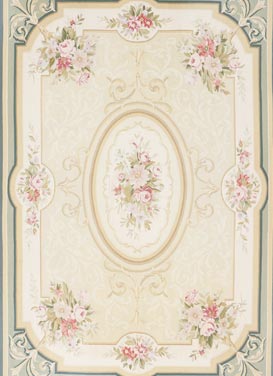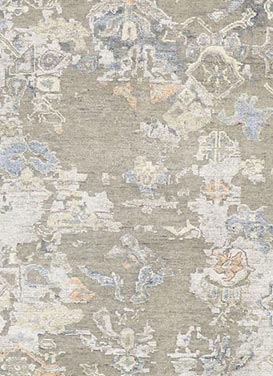- Inquiry
Description
Persian Dervish Tabarzin and Kashkul Pictorial Kerman Antique Wall Hanging, 01'10" x 01'09" from Esmaili Rugs Collection. This is extraordinary example of an expressive dervish tabarzin pictorial antique wall hanging. The tabarzin is the traditional battle axe of Iran (Persian) bearing one or two crescent shaped blades. The tabrazin is a symbolic weapon sometimes carried by the wandering dervishes. In the center, two tabarzins 'battle axes' are crossed over a dervish's Kashkul (Kashkool) Begging Bowl. This meticulously detailed composition incorporates beautifully rendered drapes flowing from the king's crown precisely enclosing the battle axes and the begging bowl adding a deeper perspective to this extraordinarily captivating scene. The littlest details are carefully outlined in contrasting colors while the subtler variations of color produce an entrancing visual effect. This extraordinary Darvish pictorial rug is a magnificent example of the Persian culture and creative dedication needed to produce such methodically composed work of art. Dervish (Darvish) is a Persian name referencing the people living and practicing the path of their God, Allah. According to Wikipedia, a dervish is someone treading a Sufi Muslim ascetic path. They are also known as "Tariqah" and recognized for their austerity and their vow to extreme poverty. The dervish believe in relinquishing one's earthly ties to reach a state of tranquility, love and harmony. In the majority of Sufi orders, a dervish is known to practice dhikr through physical exertions or religious practices to attain the ecstatic trance to reach Allah. Their most common practice is Sema which is associated with Rumi.









